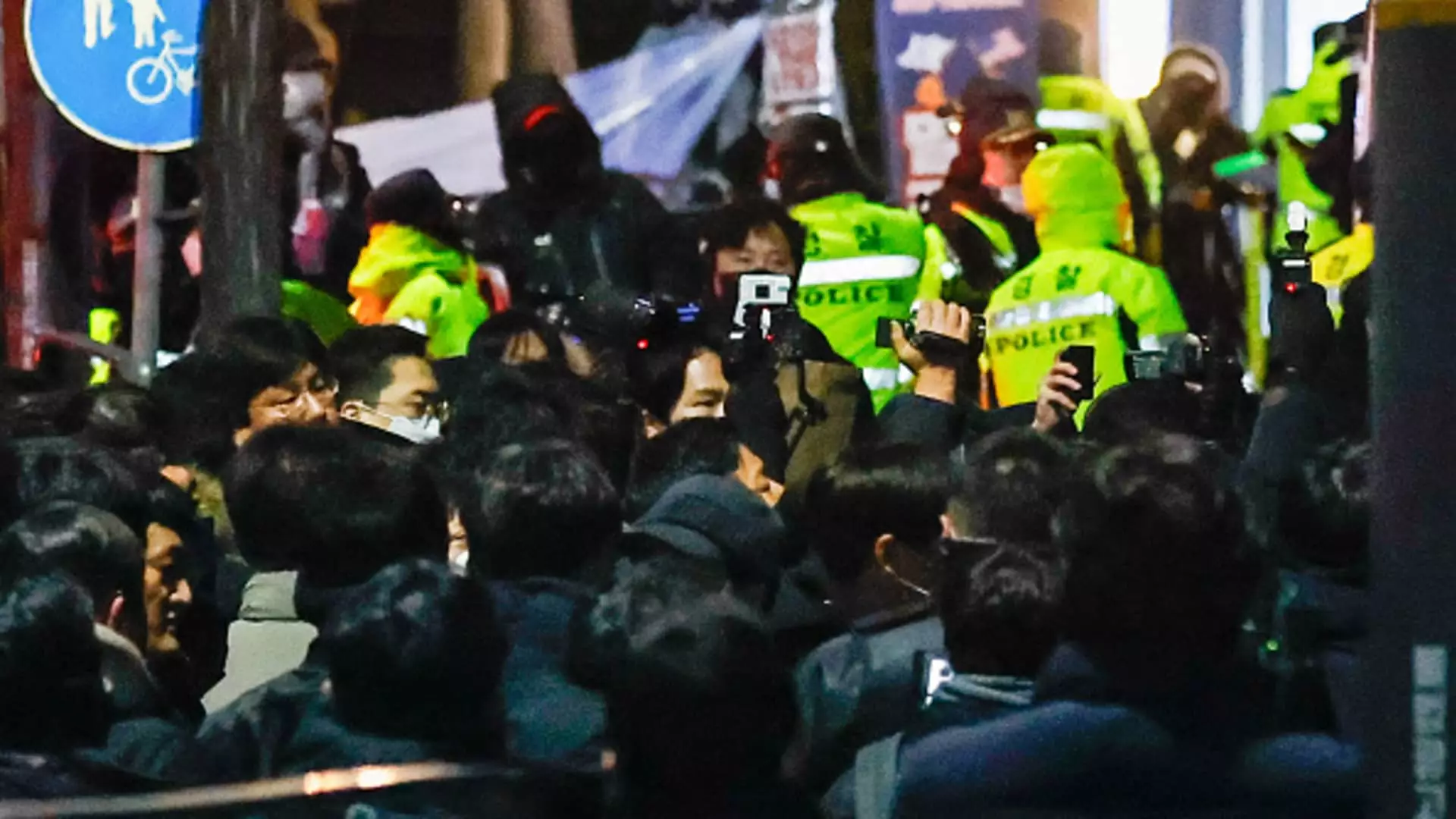In a remarkable turn of events, President Yoon Suk Yeol of South Korea has become the first sitting president to face potential arrest by the nation’s Corruption Investigation Office for High-Ranking Officials. This unprecedented situation stems from serious allegations, including insurrection related to his controversial declaration of martial law during a national crisis stemming from North Korean threats. The political landscape in South Korea has taken on a rapidly destabilizing tone as Yoon navigates this legal maze, sparking discussions among citizens and lawmakers on the implications for democracy and governance in the country.
Yoon’s initial attempt to assert control through his martial law declaration was met with an immediate backlash. The swift political actions taken by lawmakers, including a dramatic vote that led to his impeachment just days after the declaration, emphasize the government’s responsiveness to perceived authoritarian measures. Having been impeached on December 14, and subsequently suspended from office, Yoon’s presidency may face the ultimate challenge of either restoring his legitimacy or confronting a route towards escalation into violence or further political discord.
On January 3, an initial effort to arrest Yoon was thwarted by agents from his own Presidential Security Service, marking almost a surreal moment in South Korea’s political timeline. The dramatic second attempt, reportedly involving around 3,000 police officers, underscores the severity of the situation and the lengths that authorities are willing to go to uphold the law. President Yoon’s statement during this crisis—claiming the “law of the country has collapsed”—echoes sentiments of deep division within South Korean society and raises questions regarding the accountability of leaders under unprecedented circumstances.
In a video message, Yoon expressed a willingness to cooperate with the investigation, citing a desire to avoid further violence, though his framing of the CIO’s actions as “illegal” has further polarized public opinion. This ongoing chaos surrounding the presidency has led to tension in the financial markets, with only slight fluctuations observed in South Korean stocks. The Kospi index and the won remain under pressure, reflecting investor skepticism regarding political stability.
The charges Yoon faces—notably for insurrection—carry heavy penalties and present a political dilemma for South Korea. With such serious accusations that bypass presidential immunity, this situation disrupts traditional norms of governance and accountability among the nation’s highest officials. The Constitutional Court’s involvement, which aims to navigate the complex impeachment process, signifies that the nation’s judiciary is actively engaged in the political crisis, which raises the stakes for all parties involved.
The ability of South Korea’s institutions—both legislative and judicial—to maintain their authority and function amidst this political turmoil will prove critical. Many are watching to see if Yoon’s presidency can be salvaged or if this crisis will spark larger discussions about governance, democracy, and reforms necessary to prevent future political upheaval. As the trial unfolds, the implications of Yoon’s case will resonate beyond the political sphere, impacting the very fabric of South Korean democracy in both the immediate and long-term context.

